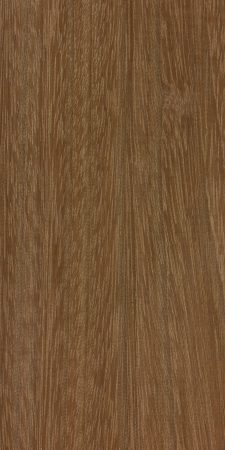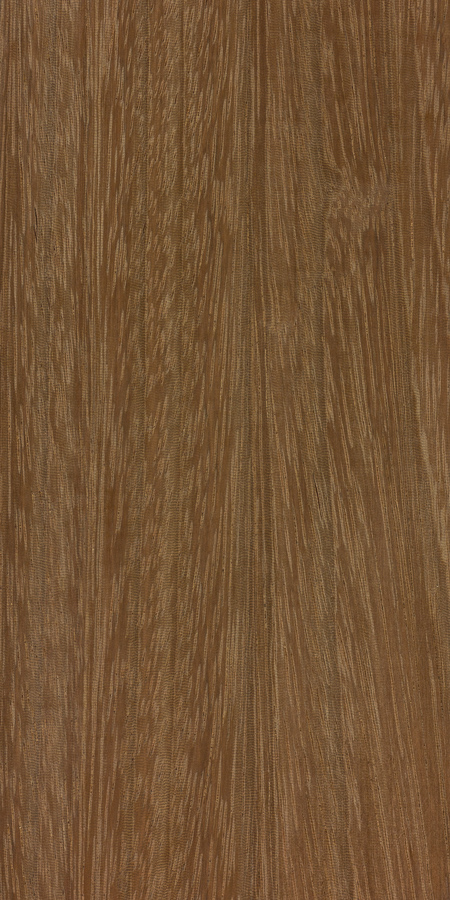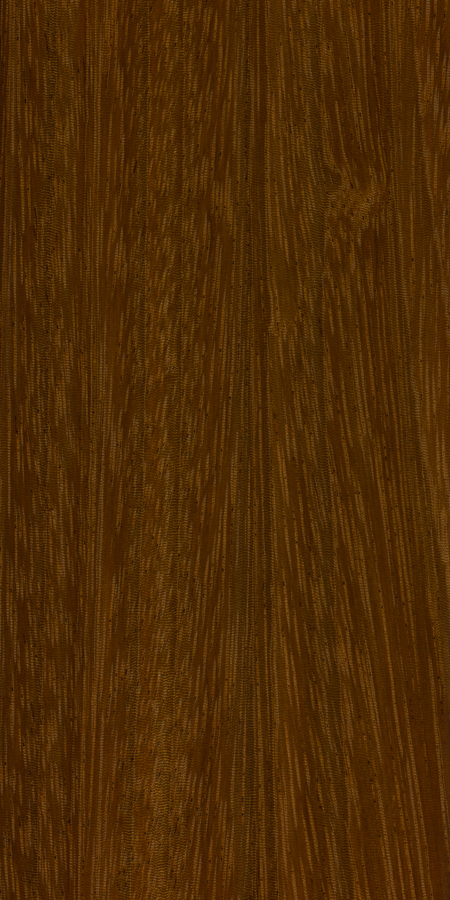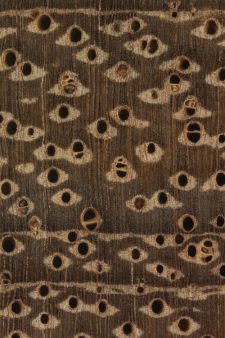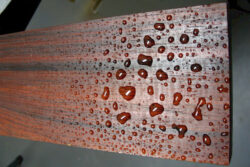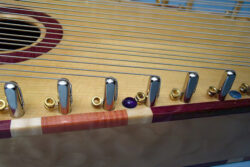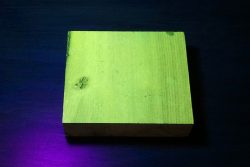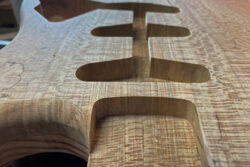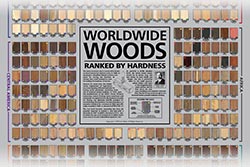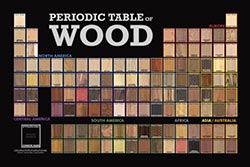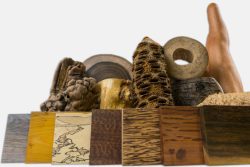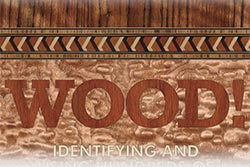DATA SOURCE(S): 6,8,14,36,43
Common Name(s): Bomanga
Scientific Name: Brachystegia laurentii, (syn. B. zenkeri)
Distribution: Central Africa
Tree Size: 100-130 ft (30-40 m) tall,
3-5 ft (1-1.5 m) trunk diameter
Average Dried Weight: 35.5 lbs/ft3 (570 kg/m3)
Specific Gravity (Basic, 12% MC): .50, .57
Janka Hardness: 1,140 lbf (5,060 N)
Modulus of Rupture: 12,550 lbf/in2 (86.6 MPa)
Elastic Modulus: 1,768,000 lbf/in2 (12.19 GPa)
Crushing Strength: 6,990 lbf/in2 (48.2 MPa)
Shrinkage: Radial: 3.7%, Tangential: 6.0%,
Volumetric: 9.9%, T/R Ratio: 1.6
Color/Appearance: Heartwood ranges from light golden brown to dark reddish brown.
Grain/Texture: Fine texture and a straight or slightly interlocked grain.
Rot Resistance: Rated as moderately durable to non-durable; poor resistance to decay and insect attack.
Workability: Easy to work with both hand and machine tools. Turns, glues, and finishes well.
Odor: No characteristic odor.
Allergies/Toxicity: Besides the standard health risks associated with any type of wood dust, no further health reactions have been associated with bomanga. See the articles Wood Allergies and Toxicity and Wood Dust Safety for more information.
Pricing/Availability: Seldom available in North America. Prices should be moderate when compared to other imported lumber.
Sustainability: This wood species is not listed in the CITES Appendices, and is reported by the IUCN as being a species of least concern.
Common Uses: A general-purpose lumber used for furniture, interior millwork, plywood, and flooring.
Comments: None.
Images: Drag the slider up/down to toggle between raw and finished wood.
Identification: See the article on Hardwood Anatomy for definitions of endgrain features.
Porosity: diffuse porous; growth rings sometimes discernible due marginal parenchyma
Arrangement: solitary and radial multiples
Vessels: large to very large, very few
Parenchyma: lozenge, confluent, and banded (marginal)
Rays: narrow width, normal to close spacing; rays not visible without magnification
Lookalikes/Substitutes: None.
Notes: None.
Related Content:

